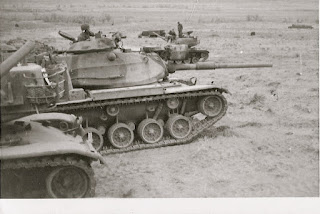I am re-reading the book
Nothing Ever Dies because I first enlisted during the war in Vietnam 51 years ago and this book holds a mirror to my service during that war and all the wars I served in and during over the fifty years that followed.
The notes below are thoughts from reading the first chapters.
Nothing Ever Dies: Vietnam and the Memory of War by Viet Thanh Nguyen
The opening chapter, “Just Memory” begins: “This is a book on war, memory, and identity. It proceeds from the idea that all wars are fought twice, the first time on the battlefield, the second time in memory.”
Nguyen then tells us the war known as the Vietnam War in America is American War in Vietnam. This identity crisis is central to the war as perceived by those who lived through and after it in Vietnam and neighboring countries.
It is one of the truisms of history that the winners write the history. But in the modern world history gets written by everyone with the means to tell their story. America was the clear loser of the wars in Southeast Asia from the mid 1960s to 1975. But America names the war and controls much of the narrative because America is the biggest producer of movies, books and other forms of bringing story to the world: all published in English.
The stories from Vietnam can never have the distribution of American narrative, especially stories in the Vietnamese language.
Language itself is a tool in the hands of those who want to shape war as it happens. Russia is “liberating” Russian-speaking citizens in Ukraine.
The sovereign country of Ukraine is a territory when defined by Russia. Those who are with Russia, like the Christian Nationalist propagandist Tucker Carlson, sided so openly with Russia that his shows were a regular part of Russian state news programming.
The people of Ukraine describe what happened as an invasion. They describe war crimes committed by Russia. They want freedom. They want peace. They have a compelling message, but Russia is bigger. Someday, the war will end and the two narratives will compete in the world of ideas.
Before the opening chapter is a short prologue. The first sentence of the Prologue:
“I was born in Vietnam but made in America. I count myself among those Vietnamese dismayed by America’s deeds but tempted to believe in its words.”
Like so many Americans who lived during the war, I “mistake Vietnam with the war named in its honor.”
When I enlisted in 1972 near the end of the Vietnam War, I signed up for the education that I did not care about when I graduated just the previous spring. But education, career, learning beckoned after several months of loading trucks and looking at the men beside me doing the same thing I was as at triple my age.
For me the war meant a chance to get away from home, from the small world of Stoneham to a world I could not imagine. I had not been south of Erie, Pennsylvania, west of Cleveland, Ohio, or ever flown on an airplane.
I cannot remember any dread in connection with the Vietnam War. It was a route to freedom.
The war I saw on TV news was no different than the war movies and serial dramas, showing endless American heroism and victory.
The world looks so different now. I served in the military four times, each time getting out I was sure I was done. Then three times, I re-enlisted. During those four enlistments, I served in or during four different wars.
Until 24 February 2022, I thought I served during three losses, one win. Now the one win, the Cold War, needs an asterisk. The peace we thought would follow the end of the Soviet empire cracked immediately in the Balkans and broke in Ukraine. We watched as oligarchy followed empire in Russia.
Beginning in 2014 and with open fury in 2022, The Empire Struck Back.
Reading Nothing Ever Dies it was clear from the first pages that more than four wars shaped the psyche of the kid who so happily signed up in 1972. My Dad was a veteran of World War II. For good and ill, those were the best years of his life—it was clear every time he told and retold his stories from the war.
My uncle Jack served in the Air Force from 1958 to 1978. He had three full tours flying over southeast Asia in a tanker plane then and F4 Phantom II fighter plane.
To say I worshipped them shows how shallow my actual religious practice has been in my life. My regard for them in uniform had none of the skepticism I always felt toward God Himself.
Which means in addition to the wars I was in or around, I was haunted by wars before I was alive, wars that happened between my last two enlistments (The Gulf War, Grenada, Somalia, The Balkans) and the wars that formed the backbone of the history of America, Europe, and Israel.
Nguyen says, “…the most important reason for Americans to remember what they call the Vietnam War, the fact that it was one conflict in a long line of horrific wars that came before it and after it. The war’s identity—and, indeed, any war’s identity—cannot be extricated from the identity of war itself. … because war is not just about the shooting but about the people who make the bullets and deliver the bullets and, perhaps most importantly, pay for the bullets, the distracted citizenry complicit in what [Martin Luther] King calls the “brutal solidarity” of white brother and black.”













